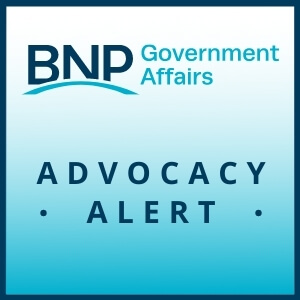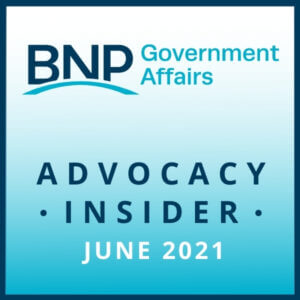9.7.21 Advocacy Alert: Hochul Triggers HERO Act – Employer Checklist
Blog Categories
September 7, 2021

What Happened?
Yesterday, Governor Kathy Hochul designated COVID-19 as a “highly contagious communicable disease,” citing rising case numbers and concerns about the delta variant. This declaration is significant because it triggers the NY HERO Act.
In June, former Governor Andrew Cuomo signed the NY HERO Act, which mandated infectious disease prevention protocols for all employers in New York. Employers must have a plan on hand, but do not need to follow these protocols unless a public health emergency is declared.
Cuomo issued an emergency declaration in March 2020, and he allowed it to expire on June 24, 2021. However, as Hochul took office, she faced pressure from lawmakers to make the declaration to trigger the HERO Act. The BNP and many others discouraged this decision.
Employer Checklist
The BNP recommends taking the following steps to comply with the NY HERO Act under this new emergency declaration:
- Utilize BNP resources (see below) to understand the NY HERO Act.
- Develop an Airborne Infectious Disease Exposure Prevention Plan for your workplace (template HERE, state standards HERE). Employers were required to adopt a plan by August 5. If you have not yet finalized yours, do so as soon as possible. The state created industry-specific templates for agriculture, construction, delivery services, domestic workers, emergency response, food service, manufacturing and industry, personal services, private education, private transportation, and retail (available at the bottom of the page here). Employers in all other industries should use the general template.
- Distribute your adopted plan to all employees. The law requires distribution of the plan within 30 days of adoption. The plan should be distributed in writing, posted at each worksite, and added to the employee handbook. Employers should also do a verbal review of the plan with employees.
- Abide by your plan throughout the duration of the emergency declaration. By following your plan and immediately correcting violations, you can keep your employees and customers safe and minimize your liability.
Disclaimer: This checklist is for informational and educational use only, and should not be considered legal advice. Legal advice is based on the specific facts of a client’s situation and must be obtained by individual consultation with a lawyer.
Where Can I Learn More?
The BNP has developed many resources to help employers understand the NY HERO Act.
We hosted two virtual episodes in which experts explained what the law means for employers. You can view the presentations and slides below:
- #1 The Basics of the HERO Act (with Barclay Damon)
- #2 Understanding and Implementing Prevention Standards (with Goldberg Segalla)
A summary of the HERO Act can be found here.
Related Posts
6.15.21 COVID-19 Bulletin: NYS Lifts COVID-19 Restrictions
NYS Governor Andrew Cuomo announced today the immediate lifting of COVID-19 related restrictions as 70% of the state’s adult population has been vaccinated (receiving at least one dose of vaccine). The 70 percent threshold in a national standard.
6.15.21 BNP Advocacy Alert – 2021 NYS Legislative Session in Review
As the 2021 state legislative session comes to a close, the BNP is proud of the many advocacy wins it earned this year. The BNP, on behalf of its members who employ over a quarter million people in the region, remains in frequent contact with lawmakers about legislation that would impact our regional economy.
BNP Advocacy Insider – June 2021
The June 2021 Advocacy Insider is a roundup of important issues we are monitoring that could you and your business.
5.26.21 BNP Advocacy Alert – Pandemic Small Business Recovery Grant Program
As you know, the Buffalo Niagara Partnership successfully advocated for the inclusion of small business recovery grants in this year’s state budget.
Through this fund, employers can access grants to help finance:


